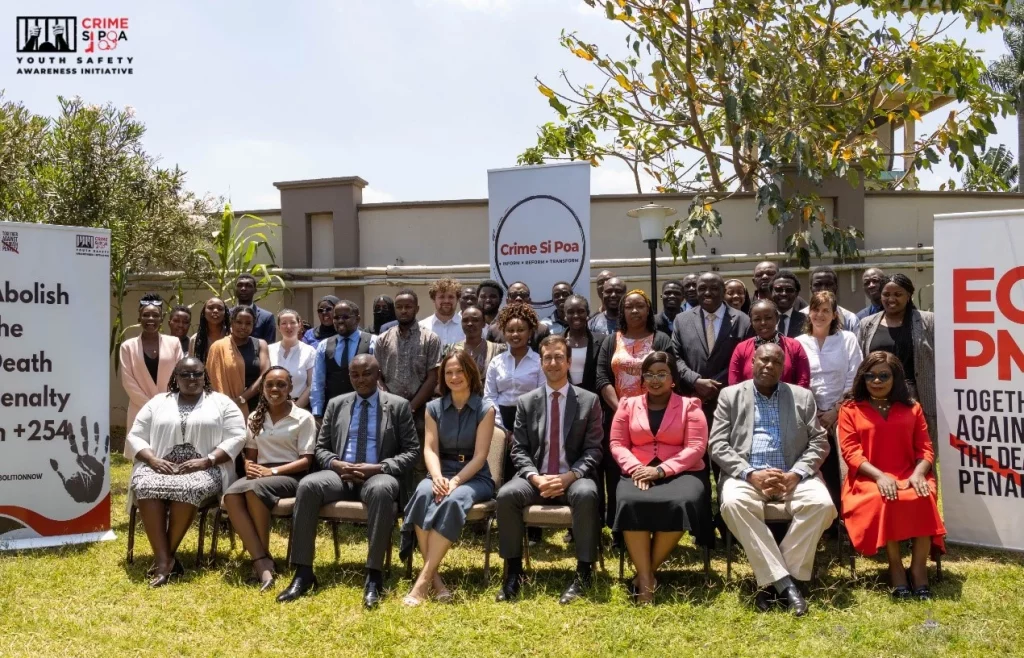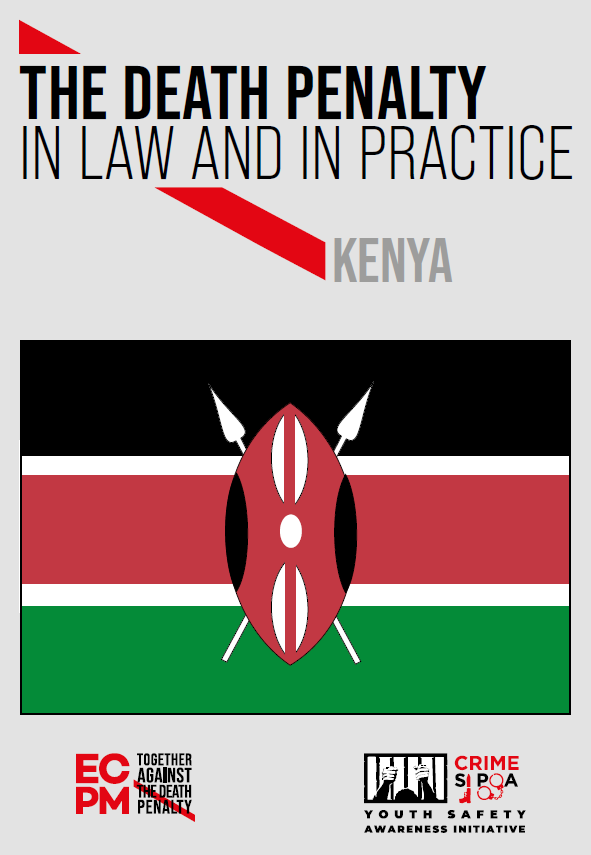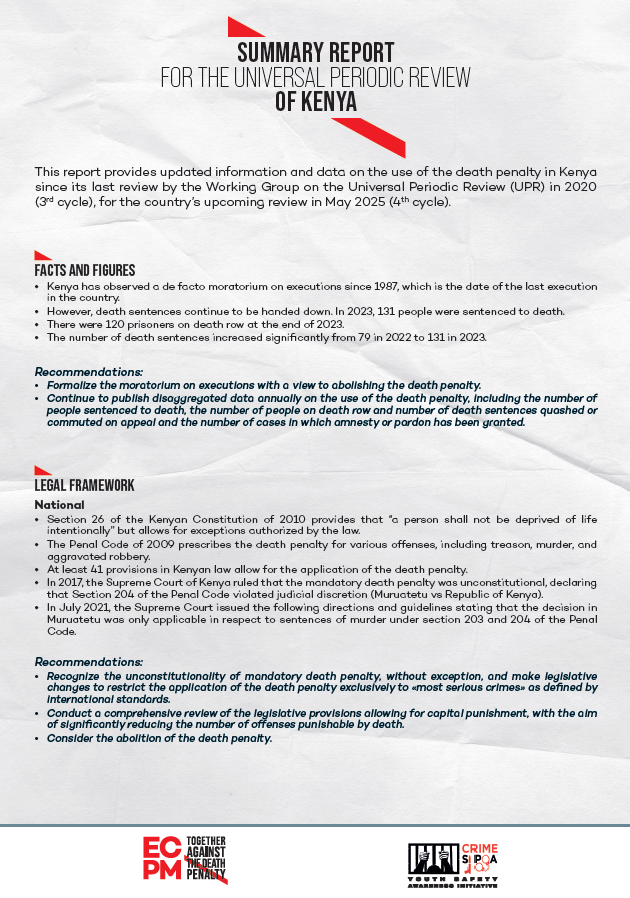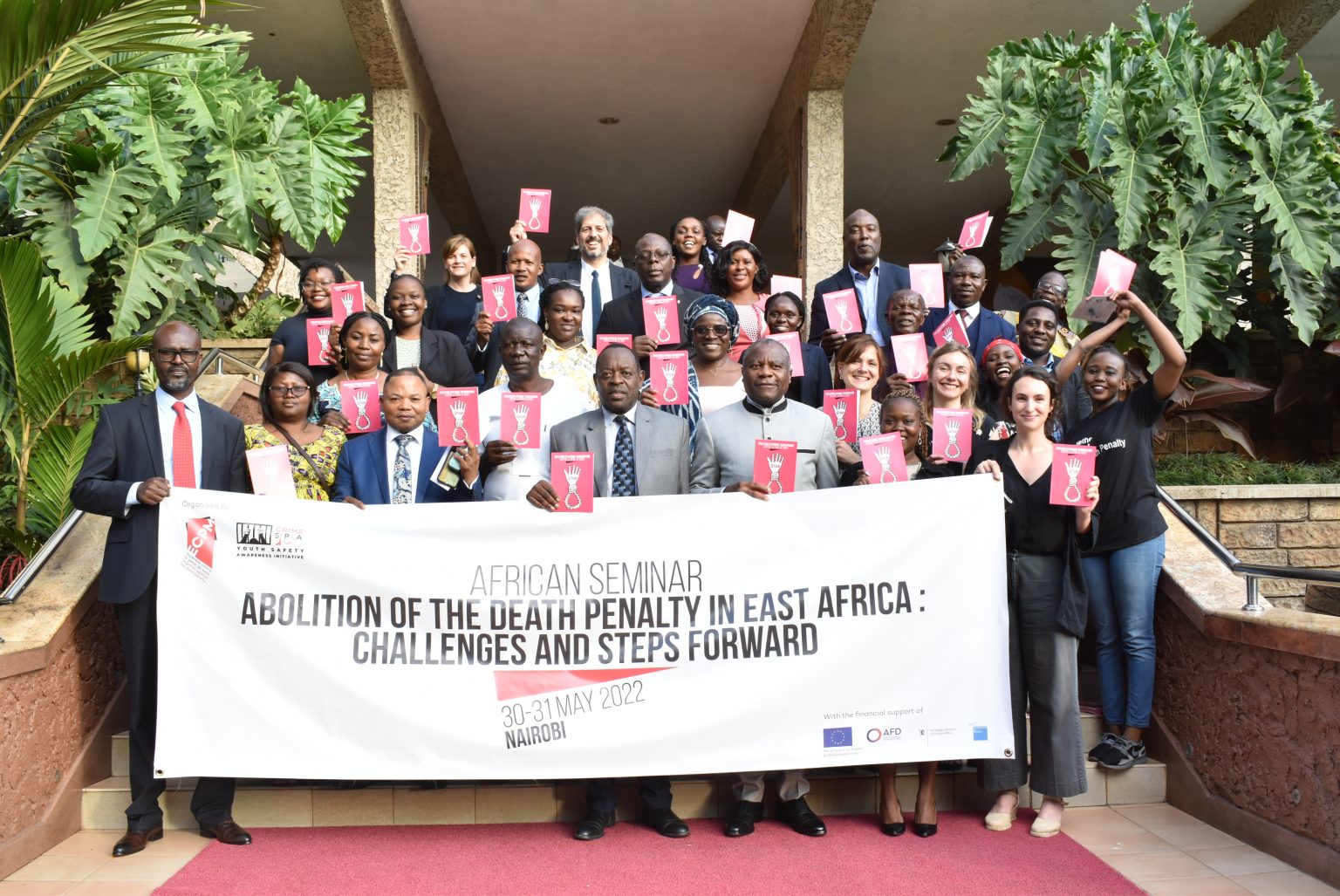
Credits : K Mutunga
Our Partners in the Field
The Situation in the Field

In East Africa, the path towards abolition remains cautious yet positive signals could serve as leverage for the rest of the region, as seen in Kenya, where a bill for abolition was presented to Parliament in 2023.
ECPM has been collaborating with Crime Si Poa in Kenya since 2022, when the two organizations co-hosted a regional, multi-stakeholder seminar on the death penalty in East Africa — the first of its kind in the region. Additionally, Kenya, through Crime Si Poa, participated in the 8th World Congress Against the Death Penalty in Berlin, where the Kenyan delegation from the Abolition Now Tour presented its advocacy and awareness-raising initiatives.
This collaboration continued in 2024 with the launch of a three-year joint project.
Strengthening Advocacy for Abolition in Kenya

Credits : K Mutunga
The actions carried out by ECPM and Crime Si Poa in Nairobi from February 24 to 28 were aimed at better documenting the application of the death penalty in law and in practice, reflecting on strategies to work effectively towards abolition of the death penalty, and raising awareness on the issue among the youth and the public. The activist spirit of the country’s youth is growing and expressing in particular by their participation in actions carried out in favor of abolition in Kenya, especially via the media.
The two organizations are working to boost advocacy for the abolition of the death penalty with the national authorities, and to build the capacity of the stakeholders involved, at both the parliamentary and civil society levels, partly thanks to the organization of workshops and conferences.
ECPM and Crime Si Poa work closely with stakeholders of the Kenyan criminal justice system, as well as with the Kenyan National Commission on Human Rights (KNCHR), and also offer para-legal training in prison for people sentenced to death.
Despite a moratorium implemented since 1987, Kenyan courts still hand down death sentences each year. However, Kenya has witnessed several significant commutations of death sentences. In 2009, President Mwai Kibaki commuted the sentences of all those on death row (4,000 prisoners). In 2016, President Uhuru Kenyatta followed suit, commuting the sentences of 2,687 individuals on death row. In 2023, President William Ruto commuted the sentences of all prisoners sentenced to death before November 2022, converting their sentences to life imprisonment. This decision followed the recommendations of the Advisory Committee on the power of mercy.
A milestone was reached towards a fairer and more humane criminal justice system in 2017, when the Supreme Court of Kenya declared the mandatory death penalty unconstitutional (Muruatetu v. Republic of Kenya). This mandatory sentencing regime had deprived judges of their discretionary powers. By ruling the mandatory death penalty unconstitutional, the Court allowed for the reopening of trials, prioritizing this process and calling for a comprehensive review to establish a framework for similar cases. However, in 2021, the Supreme Court has issued guidelines on the application of the Muruatetu ruling, clarifying that this decision only applies in cases of murder, under Articles 203 and 204 of the Penal Code.
In 2024, while a bill submitted in 2023 still seems to be a dead letter in Parliament, Kenya took a highly symbolic first step towards abolition by voting for the first time in favor of the Resolution for a universal moratorium on the use of the death penalty.
All Reports




